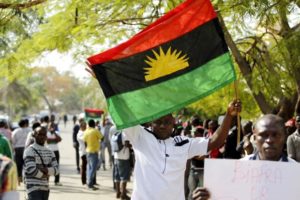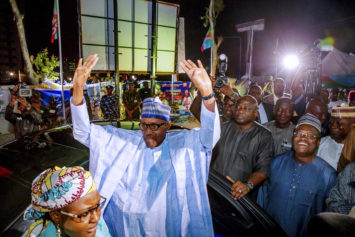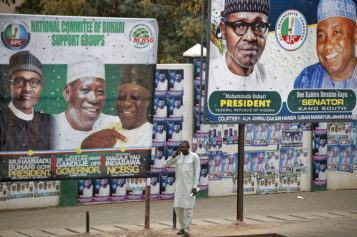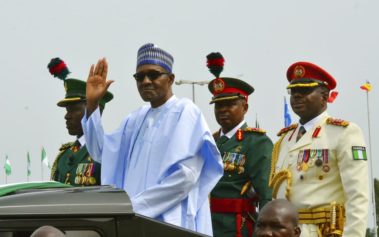
Thousands of protesters have taken to the streets of southern Nigeria in recent weeks following the arrest of a prominent pro-Biafran activist, who has been accused by Nigerian authorities of hate speech and treason. As well as demanding their colleague’s release, some protesters are calling for the establishment of an independent Biafra once again.
The protests have resulted in several deaths and Nigerian authorities have warned that anyone sowing discontent or inciting public disorder will be dealt with firmly. As tensions continue to flare, Newsweek looks at the demands of the protesters and the response of the Nigerian government.
In 1967, Nigerian military officer Odumegwu Ojukwu declared the republic of Biafra, an area mainly populated by the Igbo ethnic group, as independent in southeastern Nigeria. The Nigerian military consequently entered into civil war with the Biafrans, encircling the region and blockading supplies from reaching the population. As a result, more than one million people died, many due to starvation.
Nigeria’s Department of State Services arrested Nnamdi Kanu, a prominent Biafran spokesperson and activist, on October 19, according to the International Crisis Group (ICG). Kanu lives in London but often travels to Nigeria and was reportedly apprehended in Lagos. He is the leader of the Indigenous People of Biafra (IPOB), a secessionist group supporting the revival of the Biafran state and independence from Nigeria. Kanu is also the director of Radio Biafra, it broadcasts pro-Biafran material from London but the Nigerian government seek to ban it. Since his arrest, pro-Biafran protesters have conducted marches in southeastern Nigeria, demanding Kanu’s release. On December 2, eight protesters and two policemen were killed in clashes during a protest at the Niger Bridge in Onitsha, Anambra state, according to the ICG.
Nic Cheeseman, associate professor in African politics at the African Studies Centre at the University of Oxford, says Kanu’s arrest has acted as a “short-term trigger” to the resurgence in pro-Biafran sentiment. Cheeseman adds that the protests are a result of similar factors that led to the original Biafran uprising, in particular, a sense of political disenfranchisement among the Igbo people. “Some of the wounds of the civil war have not healed,” says Cheeseman.
Read the full story at newsweek.com


